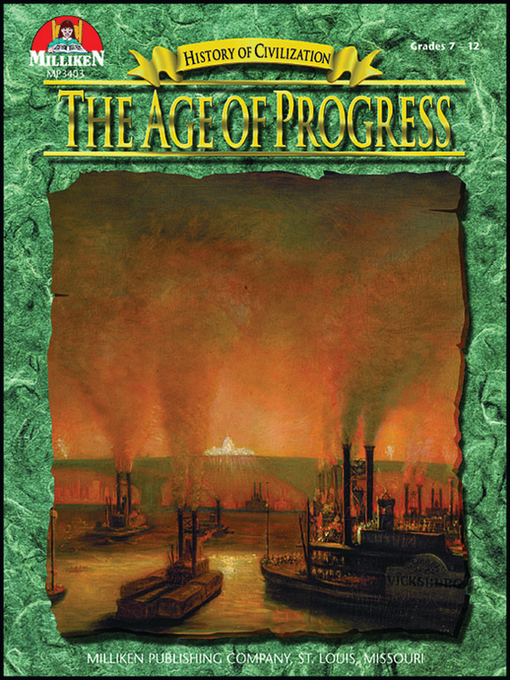(1871—1929) The Age of Progress covers the latter decades of the 19th century and the early years of the 20th. Building on the advances of the industrial revolution, this "post-revolutionary" period is similarly defined by remarkable technological and industrial innovation. An era of firsts—steel bridges, sewing machines, bicycles, typewriters, radios, automobiles, airplanes, electric light bulbs, the telephone, photography, and the first motion picture—the Age of Progress gave birth to unprecedented modes of productivity, transportation, and communication. Thomas Alva Edison, Wilbur and Orville Wright, and Charles Darwin are among the historic figures discussed. Special emphasis is given to the sociology of industrial advancement—most notably the development of leisure. Challenging map exercises and provocative review questions encourage meaningful reflection and historical analysis. Tests and answer keys included.
- Available now
- New eBook additions
- New kids additions
- New teen additions
- Most popular
- Lucky Day Reads
- Always Available
- See all ebooks collections
- Available now
- New audiobook additions
- New kids additions
- New teen additions
- Most popular
- Lucky Day Audio
- Always Available
- See all audiobooks collections
- News & Politics
- Celebrity
- Entertainment
- Cooking & Food
- Home & Garden
- Tech & Gaming
- Travel & Outdoors
- Fashion
- Business & Finance
- Hobbies & Crafts
- Just Added
- See all magazines collections
